All Stories
-
 Computing
ComputingA new supercomputer just set a world record for speed
Able to perform more than a quintillion calculations per second, it will allow scientists to study exploding stars, subatomic particles and more.
-
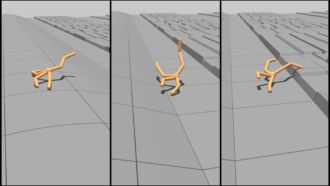 Tech
TechVirtual critters evolve bodies that help them learn
A combination of evolution and learning may lead to more intelligent and agile robots.
-
 Health & Medicine
Health & MedicineTo test for COVID-19, a dog’s nose can match a nose swab
Dogs can sniff out COVID-19 cases as well as PCR tests can — and are better at ID’ing cases having no symptoms, a new study finds.
-
 Science & Society
Science & SocietySome scientists want serious research into UFOs. Here’s why
Science grapples with unknown phenomena all the time. Investigating “unidentified flying objects” shouldn't be different, researchers say.
By Liz Kruesi -
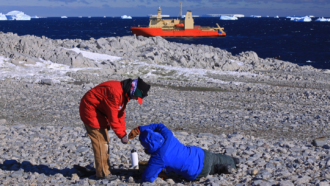 Earth
EarthUplifting Antarctic shores point to accelerating loss of glaciers
It appears the Pine Island and “Doomsday” Thwaites glaciers are losing ice — and shrinking faster — than at any time in the past 5,500 years.
By Douglas Fox -
 Space
SpaceA massive rogue roaming our galaxy may be a black hole
Alternatively, this unseen wanderer might be a hefty neutron star. Whatever it is, its gravity caused starlight to be warped — and that gave it away.
-
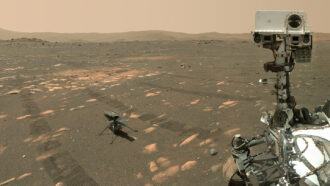 Planets
PlanetsNoises sound totally different on Mars than on Earth. Here’s why
The Perseverance rover recorded the sound of laser pulses on Mars. Scientists used those recordings to determine the Martian speeds of sound.
-
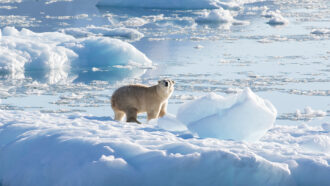 Animals
AnimalsSome Greenland polar bears are surviving with very little sea ice
The ‘glacial mélange’ on which they’ve come to rely — a mix of ice, snow and slush — could be a temporary refuge for some polar bears.
By Nikk Ogasa -
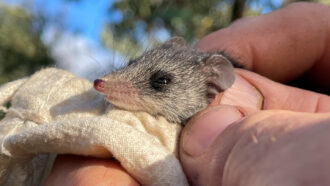 Animals
AnimalsPalm-size marsupials may face extinction from wild ‘house’ cats
After surviving Australian bushfires, the Kangaroo Island dunnart is losing ground as it's targeted by hungry predators.
By Asa Stahl -
 Materials Science
Materials ScienceLet’s learn about diamond
Diamond is born under extreme heat and pressure inside Earth and elsewhere in the universe.
-
 Tech
TechThis robotic finger is covered in living human skin
The advance brings super realistic cyborgs one small step closer to reality.
-
 Tech
TechScientists Say: Virtual reality
Virtual reality is an immersive, 3-D artificial environment created by a computer.